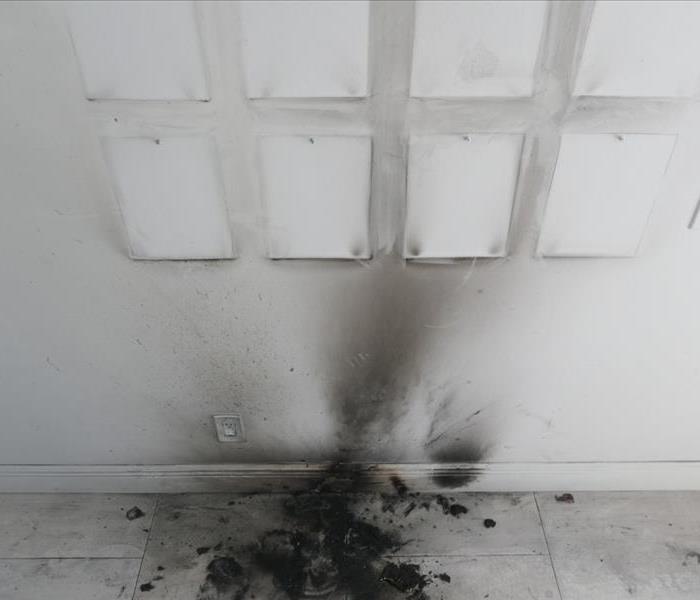Prevention of Car Battery Explosions
2/18/2020 (Permalink)
Today we are going to take a dive into a unique situation. This is a fire job we encountered caused by a car battery that exploded. That’s right, a car battery! This is actually more common than you may think, but there are ways to easily prevent it. Let’s start by gaining an understanding of the mechanics of a car battery.
Most car batteries are 12-volt lead-acid batteries, which have been built in pretty much the same fashion same since the 1930’s. Within the outer polymer case there are six two-volt chambers, also called cells. Each cell contains a grid of lead plates submerged in electrolyte (sulfuric acid). There are vents located at the top of the battery to vent gasses formed during charging cycles. Hydrogen gas is generated during the charging cycle and accumulates in a space above the sulfuric acid, prior to venting.
Hydrogen gas is easily ignited by a flame or spark and has a wide range of explosive limits in air. This leads us into the first of the three most common causes for car battery explosions, an internal spark. As a battery ages it begins to lose electrolyte. This leaves the top of the lead plates exposed to air inside the battery case. This can lead to the plates warping over time. When you put a demand of the battery for power, let’s say by starting and engine, the heavy demand can cause the warped plates to flex and touch which thus creating a spark. Replacement of electrolyte through proper battery maintenance is the recommended way to prevent this.
The second cause of explosion is caused by improper jump-starting. This happens when you attach the jumper cables to another car’s good battery first then attach it to the dead battery. This practice causes sparking. It is best to connect the jumper cables to the dead battery first, then connect it to the good battery. It is also important to note that you should never touch the jumper cables together as this may also create a spark.
Finally, a lack of proper mechanical safety practices may cause a battery to explode. For example, you may be tempted to set a wrench or other metal tool down on the battery because of its convenient flat surface. If the wrench were to make contact with both the positive and negative terminals this would cause hundreds of amps to run through it. This is sufficient enough to weld the wrench to the terminals of the battery, rapidly making the wrench red hot and untouchable. The heat generated can transfer to the battery creating overpressure which can lead an explosion. To avoid this be cautious not to let anything come in contact with the battery that was not designed to do so.
Thankfully there are lots of easy ways to avoid a car battery explosion! Please know if, in the rare occasion, your car battery explodes you call us at (772) 770-0501 and we will make it “Like it never even happened.”






 24/7 Emergency Service
24/7 Emergency Service
